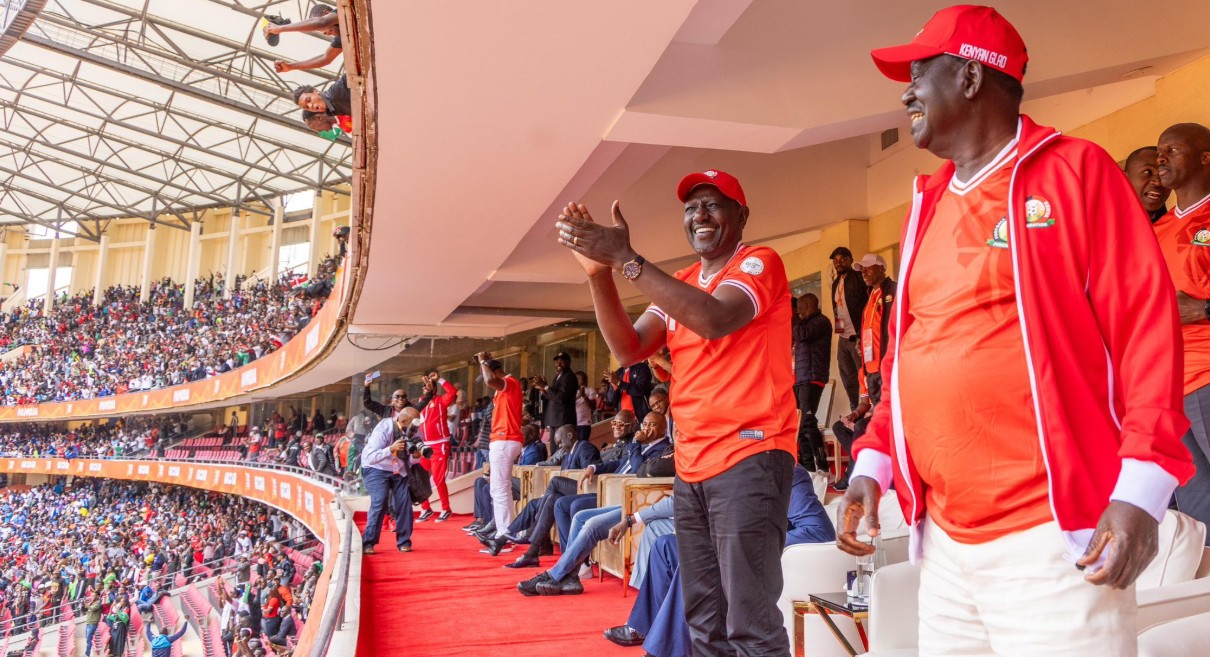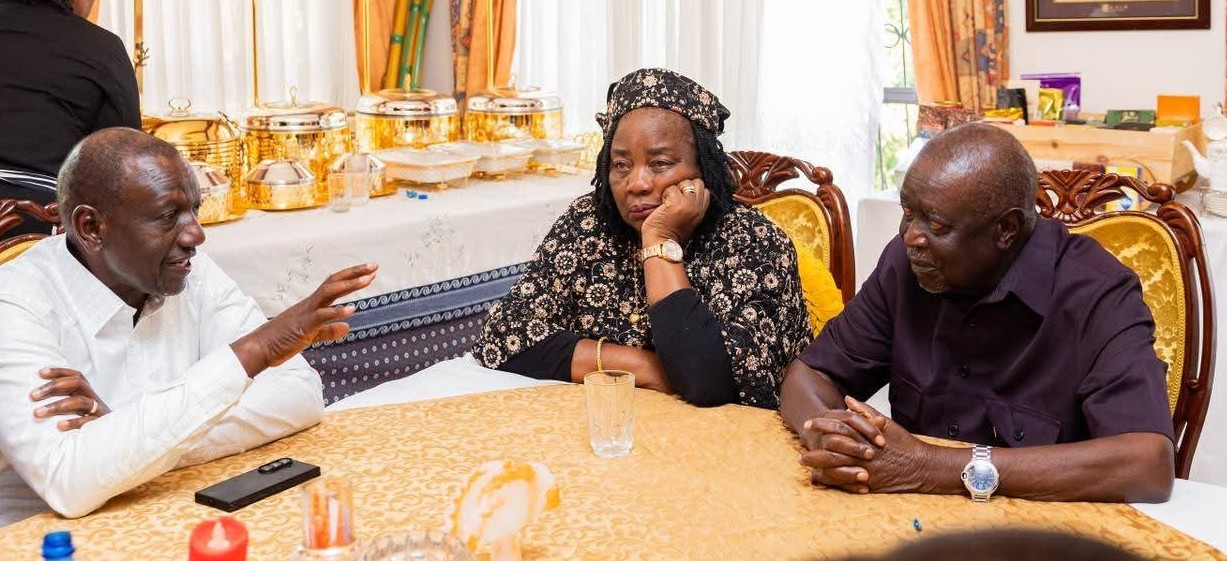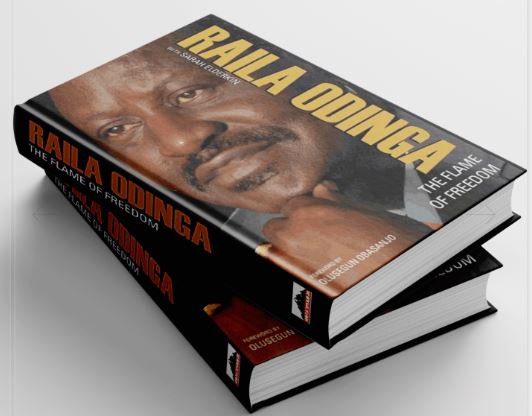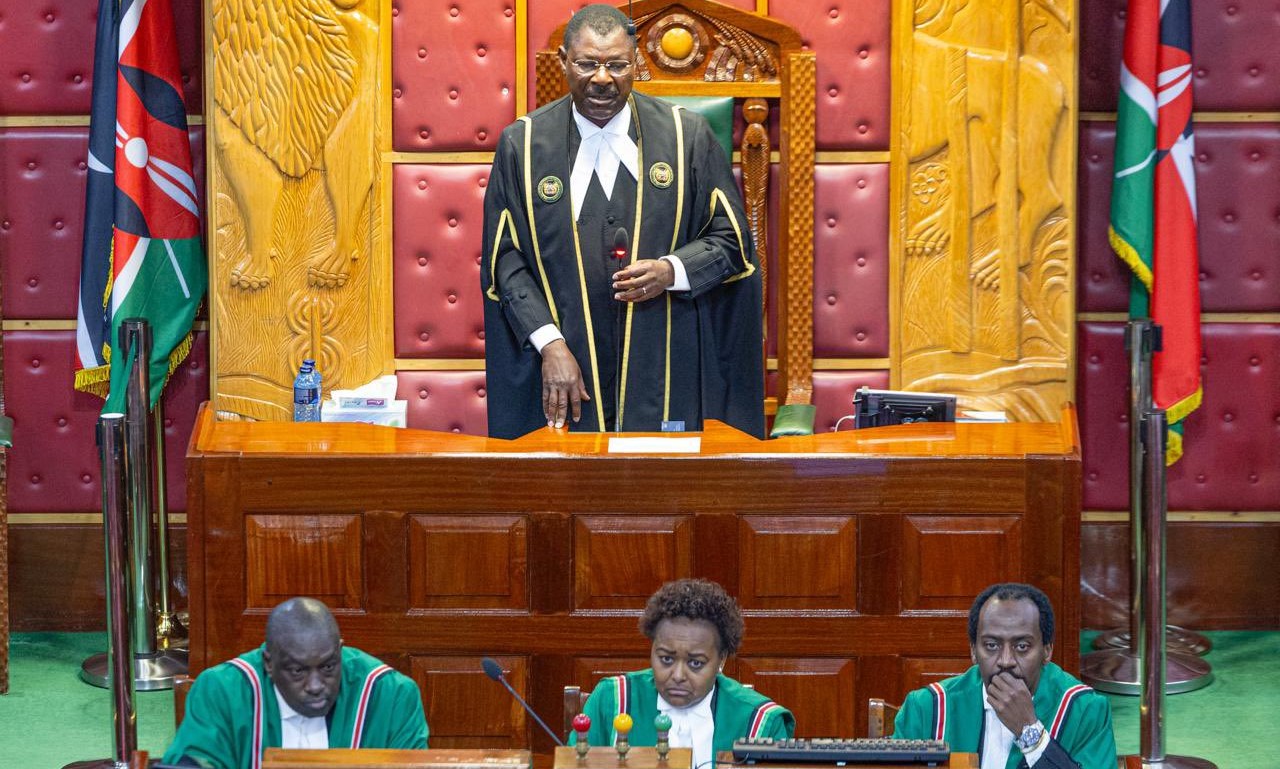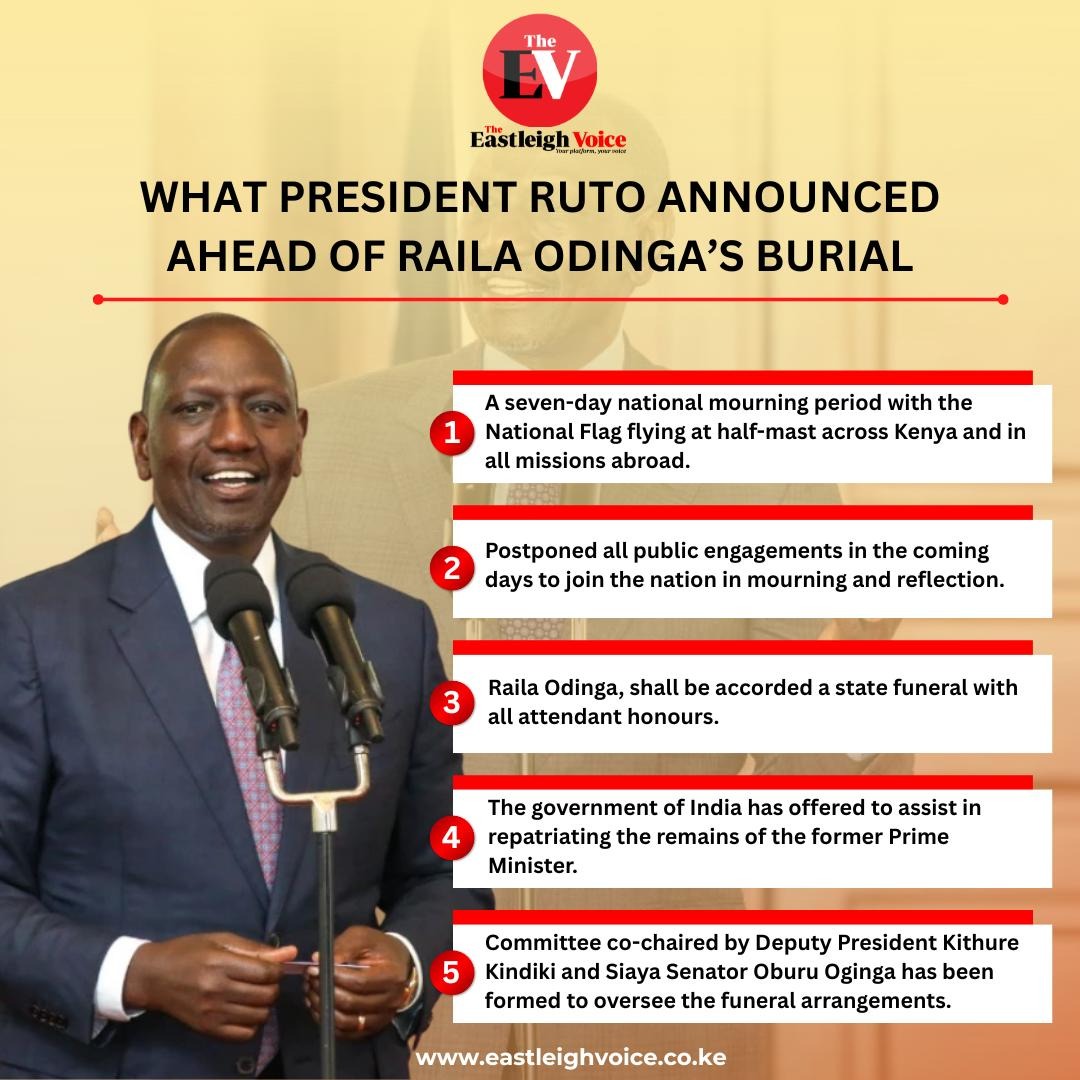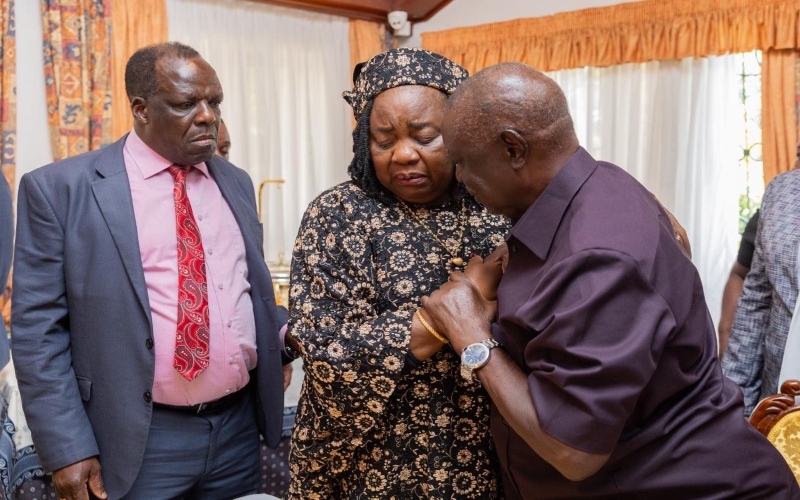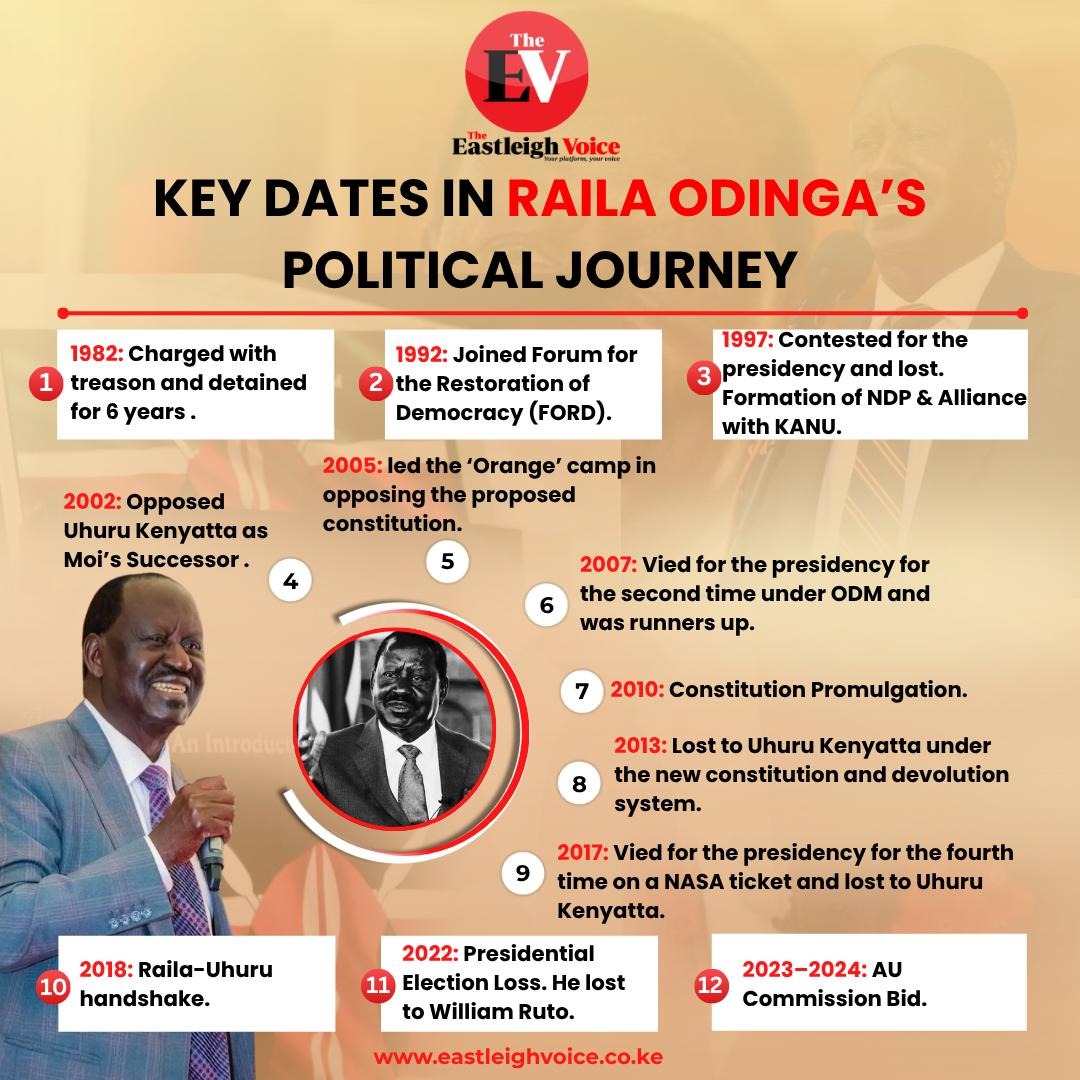Negotiating peace: Raila Odinga’s influence in Kenya and the region
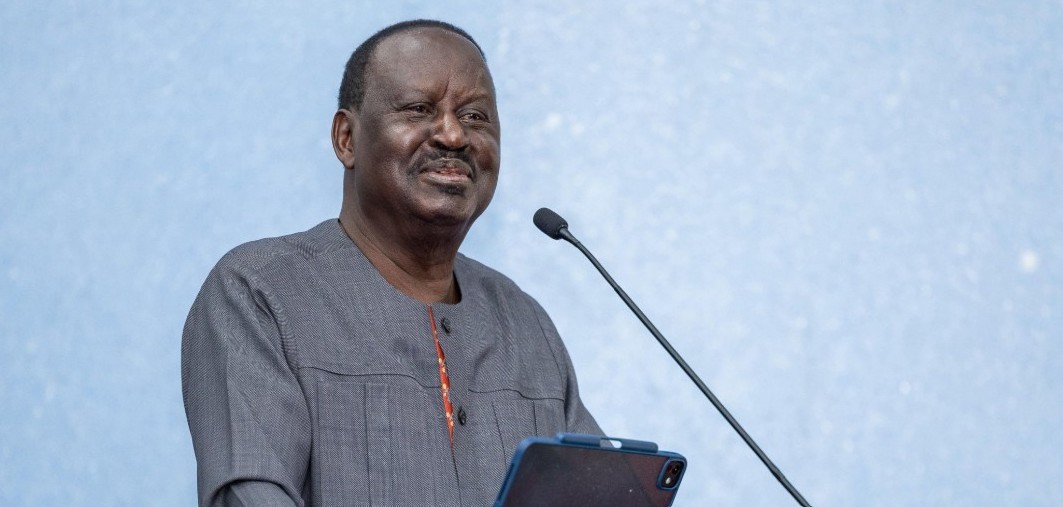
His approach combines negotiation, strategic alliances, and public diplomacy, marking him as a key player in both domestic and regional peace initiatives.
For decades, the late Raila Odinga has been a central figure in steering Kenya and the wider East African region through periods of political tension, often stepping into high-stakes situations to prevent escalation and restore dialogue.
His approach combines negotiation, strategic alliances, and public diplomacy, marking him as a key player in both domestic and regional peace initiatives.
More To Read
- Cardiac arrest explained: The 'silent killer' reportedly behind Raila Odinga's death
- Key dates in Raila Odinga's political journey
- What President Ruto announced ahead of Raila Odinga's burial
- Raila Odinga's love for Gor Mahia and Arsenal: The statesman who lived, breathed football
- President William Ruto leads World in paying tribute to Raila Odinga
- Raila Odinga: Five decades of public service in Kenya and beyond
The 2007 presidential election plunged Kenya into violent unrest, with widespread killings and mass displacement. Raila, leading the opposition Orange Democratic Movement, emerged as the chief negotiator during mediation led by the African Union Panel of Eminent African Personalities, chaired by Kofi Annan, with Graça Machel and Benjamin Mkapa.
The resulting National Accord and Reconciliation Act of February 2008 established a Grand Coalition Government, appointed Raila as Prime Minister, and shared Cabinet seats between parties.
It also set the stage for critical reforms in governance, the judiciary, police services, and constitutional review.
The agreement quickly helped reduce violence and allowed humanitarian assistance to reach displaced communities. It also paved the way for the adoption of Kenya’s 2010 Constitution and the strengthening of key institutions. Yet, accountability for post-election atrocities was only partial, with ICC prosecutions eventually collapsing or being withdrawn. The arrangement achieved political stability but left some underlying social and political grievances unaddressed.
In 2018, after another tense election cycle in 2017, Raila and President Uhuru Kenyatta publicly reconciled in what became known as the “Handshake,” establishing a platform for political cooperation.
The Building Bridges Initiative (BBI) was created to propose reforms on inclusivity, equity, corruption control, and electoral justice.
While it eased political tension and promoted collaboration across party lines, the courts later blocked the constitutional amendments proposed under BBI. Critics argued the initiative focused on elite agreements without delivering broad economic or social benefits.
Raila has also been active in regional peace efforts. During Ethiopia’s Tigray conflict, he publicly supported dialogue and peaceful resolution, while formal negotiations were conducted by AU mediators, including Olusegun Obasanjo, Uhuru Kenyatta, and Phumzile Mlambo-Ngcuka. In South Sudan, he took part in forums promoting the Revitalised Agreement on the Resolution of the Conflict in 2018, with mediation primarily under IGAD leaders.
In the Democratic Republic of Congo, he engaged in advisory and observer roles through the Nairobi Process, supporting dialogue and periodic ceasefire discussions.
At home, Raila has continued to influence domestic conflict management. Between 2023 and 2024, he led mass demonstrations over the cost of living and electoral reforms, but later suspended protests to join bipartisan talks with the government.
These efforts temporarily reduced street tensions and created dialogue platforms, though structural reforms and economic relief remain unresolved.
Raila’s record demonstrates a consistent willingness to negotiate and calm political crises, using personal political capital to channel disputes into constructive dialogue. His approach has emphasised regional stability and national de-escalation, even if some deals are elite-focused and justice at grassroots levels remains partial.
His interventions illustrate both the strengths and limitations of personality-driven peace efforts in Kenya and the region.
Top Stories Today


